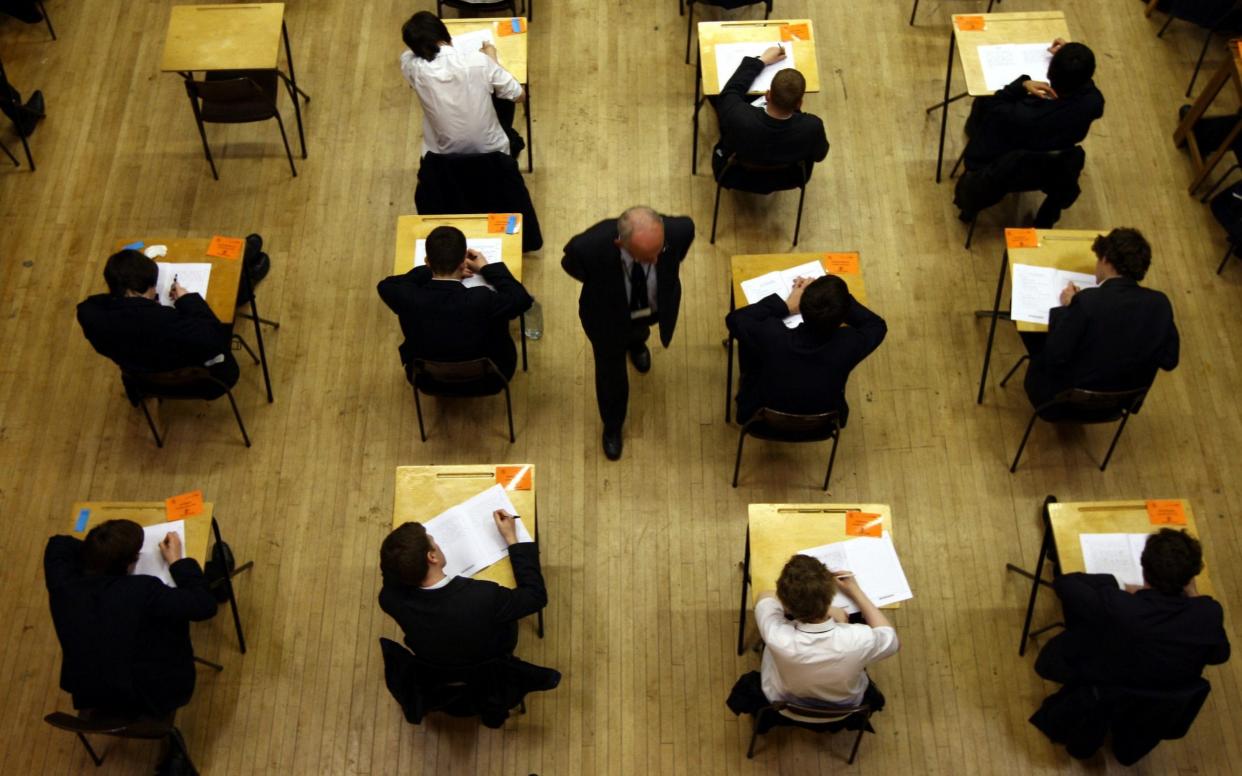Pupils may find it easier to get top grades in 2021 exams, minister suggests

Pupils may find it easier to get top A-levels and GCSEs next summer as a minister said that "grading" could be used to make up for the lost classroom time during lockdown.
Nick Gibb, the schools minister, suggested that grade boundaries could be moved to ensure that pupils taking their exams in 2021 are treated fairly.
During an education select committee hearing, he was asked how the Department for Education will ensure that the Government will ensure that students will not fare worse in their exams as a result of missing so much of the course.
"There are two issues. One is across the issue across the country as a whole, the lost education that all students will have suffered as a consequence of schools being closed to most students from March until summer," Mr Gibb said.
He told MPs that this "will be dealt with through issues such as grading" adding that that Ofqual and the exam boards are currently "working through" this.
In a normal year, the exam regulator uses a statistical method called "comparable outcomes" to ensure that roughly the same proportion of students achieve similar grades to previous years.
In 2018, which was the first year that students took the new, "tougher" qualifications, comparable outcomes meant that students could get almost half of the questions wrong in some subjects and still get an A.
If a similar approach is taken this year, it could result in grade boundaries being lowered to ensure that a similar proportion of pupils achieve top grades as they have in previous years.
Mr Gibb told MPs that he is very concerned about the varying quality of education which children have been receiving since the pandemic struck.
"The other issue that really worries me, more than any other issue that we are having to grapple with at the moment is unfairness and unevenness where different students have had a different experience of missing education in this period," he said.
"That is something we are working with exam boards and Ofqual that we are seeking to address. It is not an easy issue to address but it is something that worries me a lot."
The schools minister also declined to rule out the possibility that teachers' predicted grades - or "centre-assessed grades" - could be used as part of next year's exam series.
And asked if the government will be using mock exams to inform contingency plans, Mr Gibb said that "all these issues are subject to the discussions and the research and the work that's happening right now by Ofqual and the exam boards".
Gavin Williamson, the education secretary, has already announced that exams will be delayed by three weeks to allow for more teaching times.
Contingency plans are being drawn up for students who are unable to take exams next summer due to illness, self-isolation or a local lockdown, and an announcement is expected in early November.
Earlier this month, the exam watchdog revealed that GCSEs and A-levels could include more multiple choice questions.
Pupils may be allowed to bring formula sheets into science exams, under plans being considered by Ofqual to ensure pupils are not put at a disadvantage for having missed out on so much school.
Dame Glenys Stacey, the interim chief regulator, said that Ofqual is looking at a number of ways exams can be amended to take into account the fact that pupils have had less time to get through their courses.

 Yahoo News
Yahoo News 
